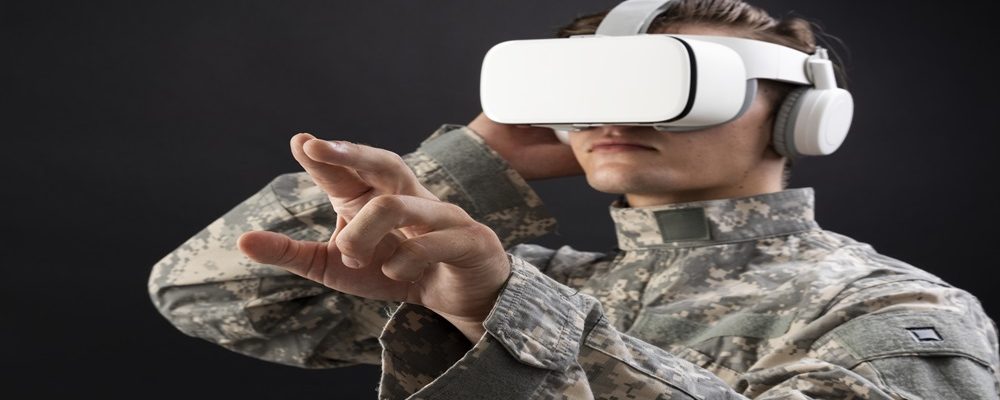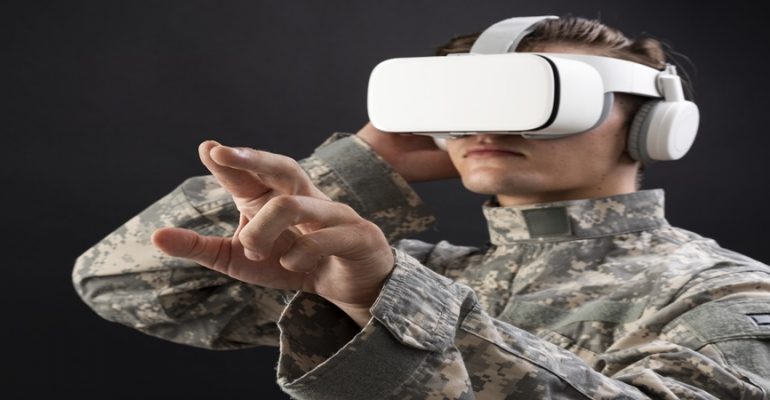
Glimpse into the Future of Manufacturing and Military

Glimpse into the Future of Manufacturing and Military
Extended Reality (XR) encompasses the full spectrum of immersive technologies, including Virtual Reality (VR), Augmented Reality (AR), and Mixed Reality (MR). As these technologies evolve, they are revolutionizing various sectors, with manufacturing and military industries experiencing significant transformations. This blog explores the latest trending ideas and use cases of XR in these fields, highlighting how XR is reshaping operations, training, and overall efficiency.
XR in Manufacturing
Enhanced Training and Simulation
One of the most prominent applications of XR in manufacturing is in training and simulation. XR technologies enable workers to experience realistic simulations of machinery and processes without the risks associated with real-world training. For example, an AR/VR development company might develop training modules that allow new employees to interact with virtual machinery, understanding its operations and safety protocols. This not only reduces training costs but also minimizes downtime and enhances safety.
Remote Assistance and Collaboration
The advent of XR allows for real-time remote assistance and collaboration. Technicians and engineers can use AR glasses to receive guidance from experts located anywhere in the world. This can significantly reduce machine downtime and improve repair efficiency. A metaverse development company can create a virtual environment where experts and technicians collaborate, sharing real-time data and visuals to solve complex problems.
Design and Prototyping
XR facilitates immersive design and prototyping, allowing engineers to visualize and interact with 3D models in a virtual space. This accelerates the design process and reduces errors. VR development companies can develop virtual environments where designers and engineers manipulate prototypes, perform stress tests, and make real-time adjustments, leading to more innovative and efficient product development.
Quality Control and Maintenance
AR is increasingly being used for quality control and predictive maintenance in manufacturing. By overlaying digital information onto physical products, AR can help workers identify defects and ensure adherence to quality standards. Additionally, AR can assist in predictive maintenance by providing real-time data on machine performance, preventing breakdowns and extending the life of machinery. Augmented reality app development companies play a crucial role in developing these solutions, enhancing productivity and reliability.
XR in the Military
Immersive Training and Simulation
The military has long been a pioneer in adopting advanced technologies for training. XR takes this to the next level by providing hyper-realistic training environments. Soldiers can engage in virtual combat scenarios, urban warfare simulations, and mission rehearsals without leaving their bases. A virtual reality company in India might develop VR simulations that mimic real-world battlefields, allowing soldiers to practice tactics, strategy, and decision-making in a safe and controlled environment.
Augmented Reality for Enhanced Situational Awareness
AR provide is soldiers with enhanced situational awareness on the battlefield. By overlaying critical information such as maps, enemy positions, and navigation instructions onto a soldier’s field of view, AR can significantly improve decision-making and operational efficiency. Augmented reality companies in India are developing AR applications that integrate with soldiers’ helmets and eyewear, offering a seamless blend of digital information and real-world surroundings.
Remote Assistance and Maintenance
Just as in manufacturing, the military benefits from XR through remote assistance and maintenance. AR glasses can connect field operatives with experts who provide real-time guidance and troubleshooting, reducing the need for specialist deployment in dangerous areas. This capability, developed by AR development companies, ensures that equipment remains operational, and missions proceed without unnecessary delays.
Mental Health and Rehabilitation
XR is also being used to address the mental health needs of military personnel. VR therapy programs help soldiers cope with PTSD, anxiety, and other mental health issues by immersing them in calming virtual environments or recreating traumatic events in a controlled manner to facilitate exposure therapy. VR app development in this domain is crucial for creating therapeutic experiences that aid in the rehabilitation process.
The Role of Metaverse
Metaverse, a collective virtual shared space, is poised to further enhance XR applications in manufacturing and the military. Metaverse development services create interconnected virtual environments where industries can operate, train, and collaborate. Metaverse company in India can build bespoke virtual worlds tailored to specific industry needs, integrating XR technologies to offer comprehensive solutions.
For instance, a metaverse app development project might involve creating a virtual factory where all aspects of manufacturing, from design to production, are simulated and optimized. In the military, a metaverse environment could host joint training exercises involving multiple branches and allied forces, fostering better coordination and preparedness.
Conclusion
Extended Reality (XR) technologies are transforming manufacturing and military sectors by enhancing training, improving efficiency, and enabling real-time collaboration. As AR/VR development companies and metaverse development companies continue to innovate, the potential applications of XR will expand, driving further advancements in these critical industries. With the combined efforts of augmented reality companies in India and virtual reality companies in India, the future of XR looks promising, paving the way for a more immersive and efficient world.
Whether through improved training simulations, real-time remote assistance, or enhanced situational awareness, XR is set to revolutionize the way we approach manufacturing and military operations, making them more efficient, safe, and effective. The integration of XR into the metaverse further amplifies these benefits, creating interconnected and immersive environments that drive innovation and collaboration.